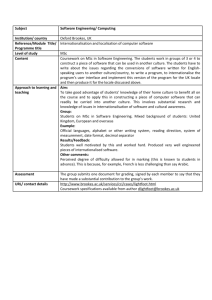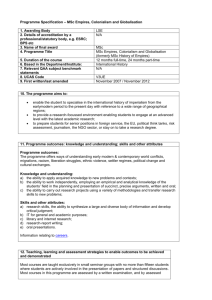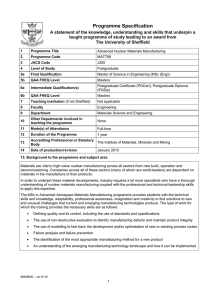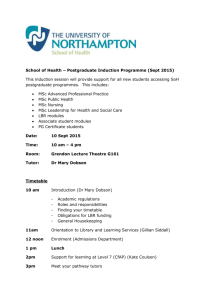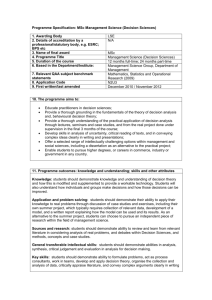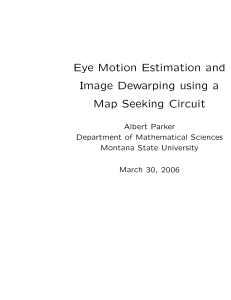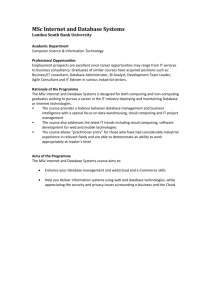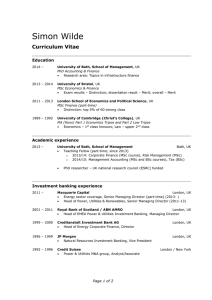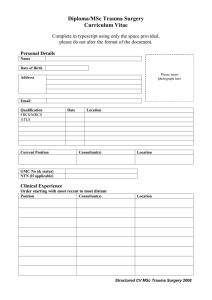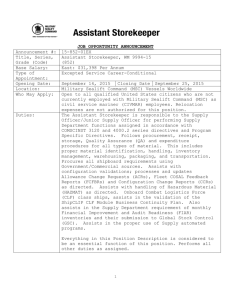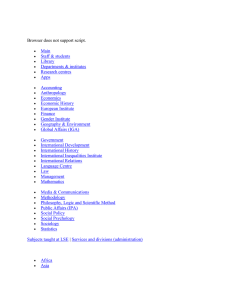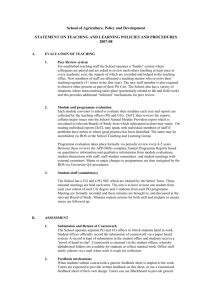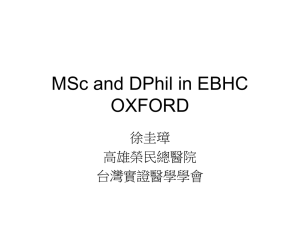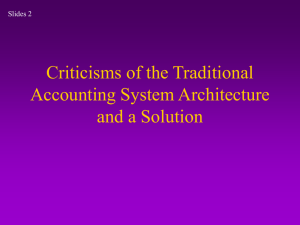Programme Specification: MSc Statistics and MSc Statistics
advertisement
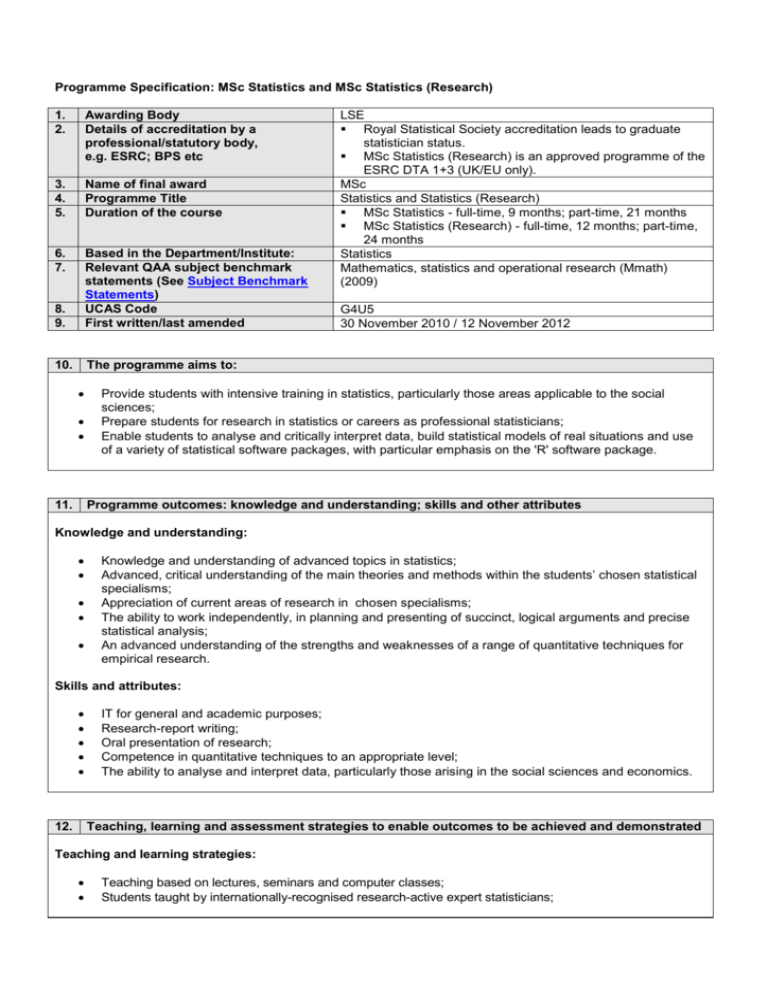
Programme Specification: MSc Statistics and MSc Statistics (Research) 1. 2. Awarding Body Details of accreditation by a professional/statutory body, e.g. ESRC; BPS etc 3. 4. 5. Name of final award Programme Title Duration of the course 6. 7. 8. 9. Based in the Department/Institute: Relevant QAA subject benchmark statements (See Subject Benchmark Statements) UCAS Code First written/last amended 10. The programme aims to: 11. LSE Royal Statistical Society accreditation leads to graduate statistician status. MSc Statistics (Research) is an approved programme of the ESRC DTA 1+3 (UK/EU only). MSc Statistics and Statistics (Research) MSc Statistics - full-time, 9 months; part-time, 21 months MSc Statistics (Research) - full-time, 12 months; part-time, 24 months Statistics Mathematics, statistics and operational research (Mmath) (2009) G4U5 30 November 2010 / 12 November 2012 Provide students with intensive training in statistics, particularly those areas applicable to the social sciences; Prepare students for research in statistics or careers as professional statisticians; Enable students to analyse and critically interpret data, build statistical models of real situations and use of a variety of statistical software packages, with particular emphasis on the 'R' software package. Programme outcomes: knowledge and understanding; skills and other attributes Knowledge and understanding: Knowledge and understanding of advanced topics in statistics; Advanced, critical understanding of the main theories and methods within the students’ chosen statistical specialisms; Appreciation of current areas of research in chosen specialisms; The ability to work independently, in planning and presenting of succinct, logical arguments and precise statistical analysis; An advanced understanding of the strengths and weaknesses of a range of quantitative techniques for empirical research. Skills and attributes: 12. IT for general and academic purposes; Research-report writing; Oral presentation of research; Competence in quantitative techniques to an appropriate level; The ability to analyse and interpret data, particularly those arising in the social sciences and economics. Teaching, learning and assessment strategies to enable outcomes to be achieved and demonstrated Teaching and learning strategies: Teaching based on lectures, seminars and computer classes; Students taught by internationally-recognised research-active expert statisticians; Active learning: compulsory regular coursework on all modules, group and individual projects on some modules; Coursework based not only on statistical methodology and theory, but also on real data analysis in the ‘R’ software suite. Assessment strategies: Compulsory coursework; Assessment on most modules based on a standard exam only; on some, partly based on project work. 13. Programme structures and requirements, levels, modules and awards See the MSc Statistics and MSc Statistics (Research) programme regulations. Additional information 14. Criteria for admission to the programme Applicants should have at least an upper second class honours degree, or equivalent, which has included a substantial amount of statistics and mathematics. Well-qualified applicants who do not meet this requirement will be considered on merit. 15. Indicators of quality Buoyant demand by well qualified applicants for the programme and high qualifications required for admission. The high fees paid by students taking the programme. Consistently good examination results and favourable remarks by External Examiners. Student questionnaires and feedback via student liaison committees. The LSE Careers Centre website provides data on career destinations of LSE graduates. 16. Methods for evaluating and improving the quality and standard of teaching and learning Termly student-staff meetings to discuss current teaching and learning experience in each individual course and react promptly to any identified problem; Continual development of syllabi to ensure that the courses are always based on, and efficiently reflect, current research in their areas of study; The Teaching and Learning Centre is available to monitor and observe teaching and offers constructive advice on how to improve the standard of teaching and quality; Departmental TLAC review once every five years; The Graduate Studies Sub-Committee oversees all graduate programmes and ensures that significant changes to programmes and courses pass through a sequence of formal stages, so that curricular changes are appropriate and compatible with other developments. Also see the School’s internal quality assurance mechanisms. 2

